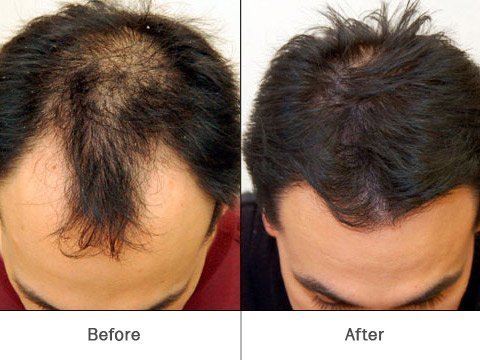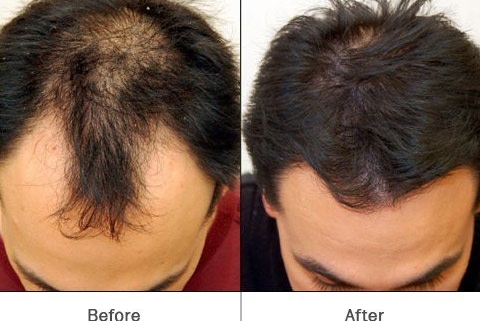Understanding Hair Loss and Hair Thinning in Men Causes Treatment
Many people experience changes to their hair at some point during their lives. While women also struggle with thinning hair and hair loss, men outnumber women in this category: 70% of men struggle with hair loss in comparison to 40% of women.
With such a high percentage, even if you’re not struggling with hair loss or thinning yourself it’s highly likely you know someone who is. However, the causes differ from person to person. Your lifestyle choices, environment, hormone related conditions , thyroid disease and genetics can all contribute to a reduction in hair coverage, and your experience of hair thinning or loss could differ from your best friend’s, or even your father’s1.
Many men affected by hair thinning will suffer emotionally, with their confidence being affected and even dealing with anxiety, depression, or insecurity. A survey commissioned by Nioxin has found that over half the men were in denial about their hair loss, refusing to talk to anybody about the problem.

What Causes Hair Thinning Or Hair Loss In Men?
Many causes of hair loss and hair thinning are due to the interruption of the hair growth cycle, which has three phases – anagen (growth phase), catagen (transitional phase) and telogen (resting phase). Hair normally sheds at the end of the telogen phase as a new hair pushes through, but a disrupted cycle could mean that hair sheds before new growth is fully ready2.
Genetics, underlying medical conditions, or environmental causes like stress and unhealthy lifestyle choices could all be reasons for hair thinning, and in some cases progressing to a partial loss of hair (e.g. a receding hairline) or even total loss of hair.
Genetics is one of the main reasons for hair loss in men. If you have a family history of hair loss, it is possible that you will experience it too, and that fact holds true for both males and females. However, there are other reasons our hair thins or falls out, some of which we can control. Other causes include:
Hormonal changes especially increase in dihydrotestosterone (DHT), the male sex hormone. DHT affects the hair follicles, making them produce smaller and shorter in length, until shrinking completely and not producing any more hairs3. Some hormonal changes may be age-related.
Extreme dieting and malnutrition – hair grows from inside the body, so if the body is not supplying the correct nutrients hair growth may be substandard.
Medical and genetic conditions such as alopecia and male pattern baldness
Medications and treatment used for diseases like arthritis and heart problems, and radiation for cancer patients
Environmental factors such as polluted air or water
Stress
Damage to the hair follicles through excessive straining (as with certain hairstyles) or harsh chemical treatments

What Are the Stages of Male Hair Loss?
Changes to the hair can happen quickly, or it can occur gradually over the years. Even though hair loss is associated with ageing, it can begin sooner – in some cases as early as 21 years of age4.
The first thing you may notice is more hair falling out, or areas where your hair looks thinner than it used to:
Your hair is thinner. If you’re noticing thinner patches of hair, you may be in the early stages of hair loss – though thinning hair can be a distressing change, even if you do not progress to hair loss. The crown area is one of the first areas where the hair starts to thin5. Discover how you can style a thinning crown to make your hair look thicker and fuller.
You notice a receding hairline. A change in hairline, whether slight or severe, can be a sign of hair loss. Hair usually begins thinning at the forehead or temples and moves towards the back of the scalp over time. Find out more about receding hairlines.
You see large clumps of hair falling out. You may notice large clumps of hair on your pillow when you wake up, while brushing it or when showering.

How Can Men Prevent Thinning Hair?
Living a healthy lifestyle can both to help prevent hair thinning in the first place and will support healthy hair growth.
Eat a rich, balanced diet high in vitamins and nutrients like biotin, iron, zinc, and Vitamin A. Avoid smoking cigarettes – some scientists believe cigarette smoke can harm hair follicles and damage hormones), get plenty of rest, and drink alcohol in moderation.
Try to keep your stress levels low, as stress can disrupt the hair growth cycle. Exercise, meditation, or relaxing with a good book are a few good ways to de-stress.
References:
https://www.medicaldaily.com/why-hair-loss-more-common-men-and-what-you-can-do-about-it-338546
https://jcs.biologists.org/content/119/3/391
https://www.healthline.com/health/dht#purpose-and-function
https://www.webmd.com/skin-problems-and-treatments/hair-loss/men-hair-loss-17/slideshow-men-hair-loss-treatment
https://www.webmd.com/skin-problems-and-treatments/hair-loss/men-hair-loss-17/slideshow-men-hair-loss-treatment
https://www.healthline.com/health/itchy-scalp-hair-loss
https://www.nytimes.com/2008/05/20/health/20real.html
This post is also available in: Turkish




Plz say me how much your product?